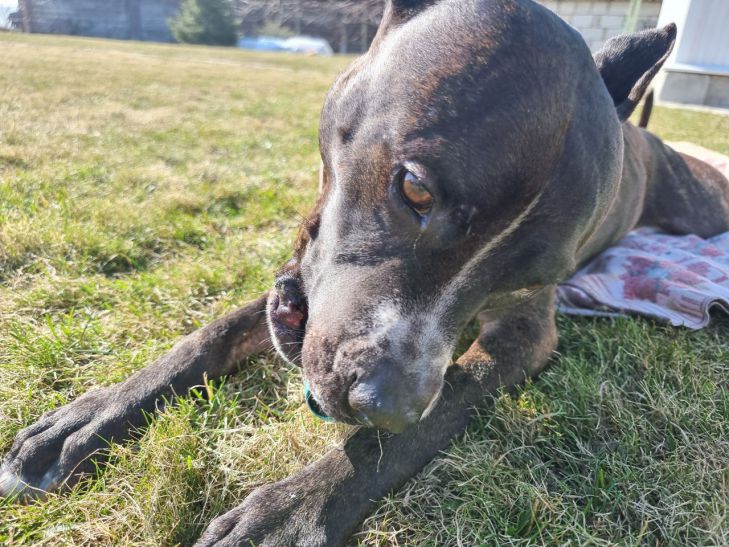Why Dogs Eat Grass: What Should a Pet Owner Do?
Probably many dog owners have seen this picture: their four-legged friend, walking on the street or in the park, suddenly starts eating grass.
At the same time, the dog can demonstrate a serious appetite and gobble up greens with gusto.
What makes pets show interest in plant food and how safe is such a herbivorous diet for them? Let's figure it out.
Normal behavior or disorder
First of all, it is worth saying that occasional grass eating by dogs is a completely normal and natural phenomenon.
Wild wolves and their ancestors are known to be omnivorous, eating not only meat, but also berries, roots, and herbaceous plants. Therefore, domestic dogs' interest in green growth can be partly considered a genetically determined instinct.

In addition, in small quantities, grass as a source of fiber can act as a natural pulp, improving the digestion process.
So, occasionally eating greens by a dog will not cause harm, but on the contrary, will be beneficial for it.
However, systematic "mowing of lawns" should alert the owner. Pathological attraction to plant food can signal certain problems with the health or feeding of the pet. Let's consider the main reasons for such behavior.
Digestive problems
If a dog regularly eats a lot of grass and then vomits or suffers from constipation, most likely its body is trying to compensate for the lack of fiber in this way. Perhaps the pet's diet is too monotonous and poor in plant components necessary for normal digestion.
Sometimes "herbivory" provokes certain gastrointestinal infections. Some helminths and yeast fungi that settle in the intestines disrupt the process of food absorption. And the dog instinctively tries to eliminate the discomfort by adding raw greens to the diet.
This is how a dog most often shows that its body lacks fibrous food or needs help from a gastroenterologist. And the first reaction in this case is to adjust the diet or consult a veterinarian about the state of the pet's gastrointestinal tract.
Behavioural problems
Sometimes a dog's increased interest in grass reflects deeper behavioral or psychological issues.
Most often, "herbivory" manifests itself in dogs that experience severe stress during the period of adaptation to new conditions or owners. This is also observed during prolonged loneliness of the animal.
Eating grass in such cases is explained by an attempt to cope with anxiety and excessive excitement. The dog tries to normalize its own emotional state in this natural way.
The task of the owners in this situation is to minimize stress-forming factors in the life of the pet, pay more attention to it, involve it in active activities. And in case of pronounced neurotic reactions - seek help from a specialist dog trainer.
Metabolic disorder
Finally, sometimes an increased craving for plant foods in dogs is associated with systemic diseases and hormonal imbalances.
In particular, this is observed in diabetes, Addison's disease, thyroid dysfunction, as well as during pregnancy and lactation.
In all these cases, the body experiences a deficiency of important substances, the need for which the animal instinctively tries to replenish by eating available grass.
It is unlikely that you will be able to solve the problem on your own - it is necessary to take measures to diagnose and treat the underlying disease under the supervision of doctors.
At the same time, the desire for grass should gradually normalize as metabolic disorders are corrected.
So, we have considered the main probable reasons for dogs' increased "appetite" for grass. In conclusion, we will emphasize once again: occasional eating of a small amount of greenery is completely natural and even useful for a healthy pet.
However, regular "mowing the lawn" requires the attention of the owners and may be a symptom of serious health problems. In any case, if questions arise, it is better to consult a veterinarian! Good luck to you!
Previously, experts explained why a dog growls when someone tries to pet it.
